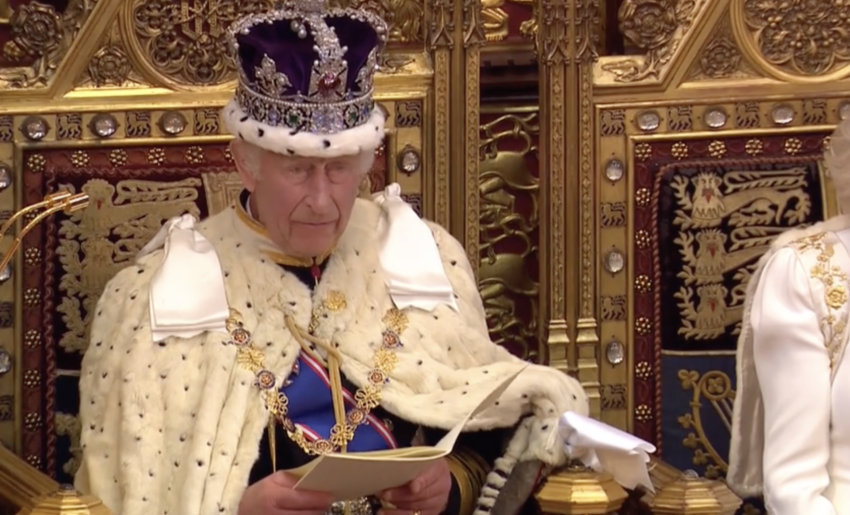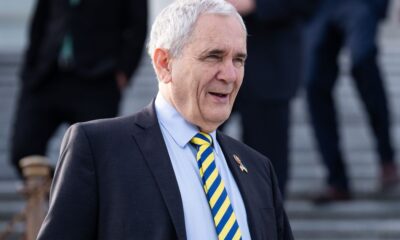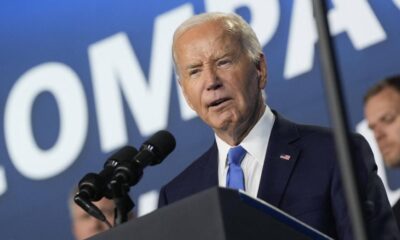Business
A call to arms for entrepreneurs

In a world where rhetoric is valued as much as policy, you might expect a royal message like the King’s Speech to be packed with guarantees and incentives for our country’s entrepreneurial spirit.
Unfortunately, the last edition of this ceremonial speech brought nothing but disappointment to the enterprising souls of Britain. For those of us who had pinned our hopes on a royal show of support, the silence was deafening.
Picture this: the King’s Speech, an opportunity for the government to set out its grand vision, rally the troops and give a loud shout of encouragement to those daring enough to invest in the uncertain waters of new business ventures. But what did we receive? A tepid, tasteless repetition of well-known promises and a glaring omission of substantial support for business. This from a government that supposedly champions the cause of entrepreneurship and innovation.
Simon Rothenberg of Can Rothenberg has succinctly expressed the collective dismay. Entrepreneurs, he noted, are in a state of anxiety about the potential impact of the new administration on their businesses. The king’s speech did not provide much-needed reassurance. There was no mention of business tax, no clarification on corporate tax, capital gains tax or VAT. Business leaders remain in limbo and eagerly await the budget for any semblance of certainty. It’s like waiting for a bus in the pouring rain, with no timetable in sight.
The lack of a clear, supportive narrative for businesses is compounded by other government proposals that could worsen the challenges facing UK businesses. Take, for example, the proposed change to the Pupil Levy. These adjustments risk penalizing companies that currently benefit from government support to train and develop their workforce. It’s a classic case of giving with one hand and taking away with the other, leaving companies caught in a precarious balancing act.
In addition, the King’s Speech contained proposals from the Labor Party’s election manifesto to improve employment protection. While these measures are a triumph for unions, they could pose potential problems for companies struggling with higher costs and reduced flexibility. You can’t help but marvel at the irony: a government that claims to support business is simultaneously imposing regulations that could hinder their growth.
Consider the proposed expansion of the National Living Wage to all adults, including those aged 18 to 19 with no prior work experience. On the surface, it seems like a noble endeavor, a step toward equality. But look beneath the surface and it becomes clear that this can deter companies considering hiring young, inexperienced staff. The costs of recruiting and training these people would skyrocket and undermine the existing system that recognizes the need for different pay rates for younger workers.
By their nature, interns require significant investment from employers to bring them up to speed. The current wage system reflects this reality and offers a pragmatic approach to encouraging young talent. Yet the government’s new proposal risks upsetting this delicate balance, potentially discouraging companies from investing in the workforce of the future. It’s a short-sighted move that could have long-term consequences.
In this context, the King’s speech could have been a beacon of hope. It could have addressed these concerns head-on and provided clear policies and incentives to boost business confidence. Instead, it sidestepped the critical issues, leaving the business community in a state of limbo.
You could argue that the King’s Speech is merely a ceremonial affair, and not the place for detailed policy announcements. Yet symbolism is important. The speech sets the tone for the government’s agenda, and its failure to recognize the urgent needs of businesses sends a disturbing message. It suggests there is a disconnect between the government’s statements of support for business and the reality of its legislative priorities.
At a time of economic change, with Brexit still casting a long shadow and global competition becoming increasingly fierce, British entrepreneurs need more than vague guarantees. They need concrete policies, tax incentives and a regulatory framework that encourages innovation and growth. They need to know that the government has their backs, that their risks will be rewarded and that their contributions to the economy will be appreciated.
As it stands, the King’s Speech offered none of this. It was a missed opportunity, a disappointing silence, while there should have been a resounding statement of support for the lifeblood of our economy: entrepreneurs. If the government really wants to promote a thriving business environment, it needs to do better. It must listen to the concerns of the business community and act decisively. Otherwise we risk stifling the spirit of innovation that has long been the hallmark of British entrepreneurship.













